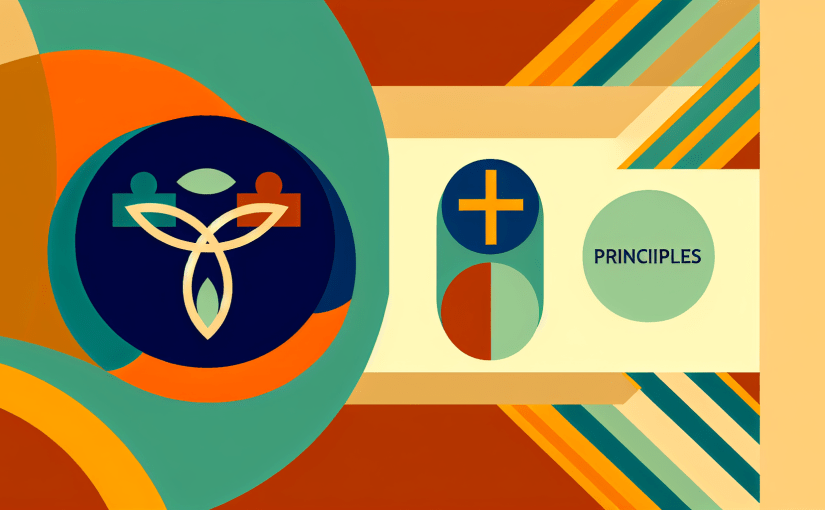Catholic Views on Modern Medical Ethics
In an era where advancements in science and technology continuously shape the landscape of healthcare, understanding the Catholic Church’s perspective on modern medical ethics is crucial. Catholic views on modern medical ethics address a range of topics including bioethics, reproductive health, end-of-life care, and emerging medical technologies. This blog post will delve into these areas, providing insights into how Catholic teachings influence ethical decision-making in medicine today.
The Foundation of Catholic Medical Ethics
At the heart of Catholic medical ethics is the belief that every human life possesses inherent dignity and value. Rooted in the teachings of Jesus Christ and guided by the principles of natural law, Catholic ethics emphasizes the sanctity of life from conception to natural death. This framework directs the moral reflection on medical practices and innovations, ensuring that they align with respect for human life and the common good.
Key Principles of Catholic Medical Ethics
-
The Dignity of the Human Person: The Catholic Church teaches that every individual, being created in the image and likeness of God, has an intrinsic dignity that must be respected. Medical choices should never undermine the inherent value of human life.
-
The Common Good: Catholic ethics emphasizes not just individual rights but also the common good. When considering medical interventions, one must weigh the benefits and implications for society as a whole.
-
Solidarity: This principle calls for compassion towards those who suffer, advocating for access to healthcare for all, especially the marginalized and vulnerable populations.
-
Subsidiarity: Decisions should be made at the most local level possible, ensuring that individuals have a say in their healthcare, but with guidance from higher authorities when necessary.
With these principles in mind, let’s explore specific areas where Catholic views on modern medical ethics come into play.
Reproductive Health and Family Planning
One of the most debated topics in modern medical ethics is reproductive health. The Catholic Church maintains a consistent teaching that upholds the sanctity of life from conception. This means that practices such as abortion and artificial contraception are considered morally unacceptable.
Abortion
From a Catholic perspective, abortion is viewed as the deliberate destruction of innocent human life and is strictly opposed under any circumstances. The Church argues that life begins at conception, and every effort should be made to protect the unborn. Catholic teaching advocates for alternatives to abortion, including adoption services and support for mothers in crisis pregnancies.
Contraception
Artificial contraception is also rejected by the Catholic Church. Instead, it promotes Natural Family Planning (NFP) as a morally acceptable means of family planning. NFP respects the natural rhythms of fertility and fosters communication between couples. This approach aligns with the Church’s view of openness to life within the context of marriage.
End-of-Life Issues
End-of-life care poses significant ethical dilemmas. The Catholic Church emphasizes the importance of providing compassionate care while also respecting the dignity of the dying person.
Euthanasia and Assisted Suicide
Euthanasia and assisted suicide are explicitly condemned by the Catholic Church. The belief is that life is sacred, and intentionally ending a person’s life, even in the name of alleviating suffering, is immoral. Instead, the Church advocates for palliative care that focuses on relieving pain and supporting the dying process without hastening death.
Advanced Directives
While the Church opposes actions meant to hasten death, it encourages individuals to engage in discussions about advanced healthcare directives. Planning for end-of-life care helps ensure that one’s wishes are respected while maintaining dignity and care.
Stem Cell Research
Stem cell research is another contentious area in the realm of modern medical ethics. The Catholic Church has cautiously navigated this field, supporting research that utilizes adult stem cells while opposing the use of embryonic stem cells, which involves the destruction of human embryos.
The Ethical Stance
The Church’s position stems from its belief in the sanctity of life. Adult stem cell research is viewed as ethically permissible because it does not involve the destruction of human embryos and has already shown promise in treating various diseases. Research that respects human life aligns with Catholic values and offers a path for scientific advancement without ethical compromise.
Genetic Engineering and Biotechnologies
As technology progresses, the potential for genetic engineering and biotechnologies raises new ethical questions. The Catholic Church maintains that such advancements should be approached with caution and moral deliberation.
Genetic Modification
While the Church acknowledges the benefits of genetic modification for curing diseases, it warns against practices that could lead to ‘designer babies’ or eugenics. The integrity of human life must be preserved, and modifications should always be aimed at healing rather than enhancement.
Cloning
Cloning, particularly reproductive cloning, is firmly opposed by the Catholic Church. This practice poses significant ethical concerns regarding the nature of human life and individuality. Cloning threatens to commodify human beings and diminish the dignity granted to each person as a unique creation of God.
Mental Health and the Body-Soul Relationship
Mental health is an essential component of overall well-being, and Catholic views on this topic emphasize the holistic approach to healthcare. The Church acknowledges the body-soul connection, asserting that mental health issues are not just medical conditions but also spiritual concerns.
The Importance of Spiritual Care
Catholics believe that mental health care should include spiritual support, emphasizing the role of prayer, community, and the sacraments. This perspective encourages individuals to seek help for mental health conditions, understanding that they are part of a larger spiritual journey.
Care for the Whole Person
Catholic healthcare providers often focus on treating the whole person—body, mind, and spirit. This integrated approach promotes healing and reconciliation, recognizing the importance of addressing both physical and psychological needs.
The Role of Catholic Healthcare Institutions
Catholic healthcare institutions play a vital role in providing medical care rooted in Catholic ethics. These organizations adhere to the Church’s teachings, ensuring that their services align with the values of respect for life and the dignity of every patient.
Comprehensive Care
Many Catholic hospitals and clinics offer comprehensive care, including preventive services, treatment options, and end-of-life support. Their commitment to ethical practices ensures that patients receive care that respects their dignity while also providing compassionate support.
Advocacy for Social Justice
Catholic healthcare institutions often take an active role in advocating for social justice and access to healthcare for underserved communities. This commitment reflects their dedication to the common good and the ethical principles of solidarity and subsidiarity.
Conclusion
Catholic views on modern medical ethics provide a profound and comprehensive framework for navigating the complexities of contemporary healthcare. The principles of the dignity of the human person, the common good, solidarity, and subsidiarity serve as guiding lights in various ethical dilemmas faced in medical practice today.
From reproductive health and end-of-life issues to advancements in biotechnology, the Catholic Church’s teachings emphasize a moral approach that respects life and promotes dignity. As technology continues to evolve, engaging with these ethical principles will be increasingly important for healthcare professionals and patients alike.
In conclusion, understanding Catholic views on modern medical ethics is essential for anyone navigating the realm of healthcare today. By grounding decisions in respect for life and a commitment to the common good, we can ensure that our medical practices reflect the values that uphold the dignity of every human being.




